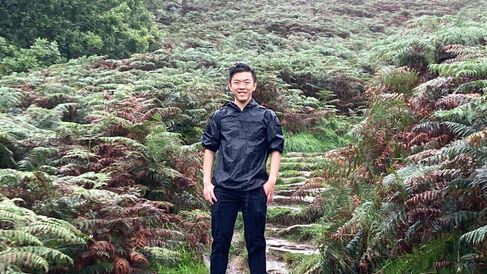About Myles

My Project
I’m working on the project, “Mapping of oceanic heat and carbon uptake using machine learning”, supervised by Dr Laura Cimoli
Why ICCS?
My first experience with research in climate change came when I attended the International Science Camp at the University of Göttingen, looking into renewable energy and sustainable energy storage infrastructure. This, combined with my programming experience competing in my high school robotics team, sparked my interest in investigating how computing and programming can be applied to tackle different aspects of climate change. ICCS is the place for me to do exactly that, gaining valuable insight into the world of research while still being in a relatively familiar environment in Cambridge.
A Typical Day
Barring days when I have meetings with my supervisor, I tend to work from home, as regardless of where I am, my workflow involves remotely connecting to a computer in the department and running programs and models there. This gives me a degree of freedom with my working hours, which I quite enjoy.
Much of the day is either spent programming, such as adding new features and visualizing the output data, or analyzing the results and finding improvements to the underlying models.
Proud Moment
The ultimate goal of my project is to produce a spatially gridded product of tracer reconstructions in the ocean. I am excited to contribute to the community and hopefully provide results that will help extend our understanding of the ocean, how the various branches of ocean circulation interact with one another, and the effect this has on the climate. In terms of the project so far, I am proud of the numerous occasions where I have been able to quickly identify and fix issues, be it with my code or with the programming environment on the department computers.
Most valuable part
Apart from the insight gained from being involved in academic research efforts, the most valuable thing I have gained so far has been the skills – both in terms of programming, where I have learnt to write clean and well-documented code, and in communication, which I have practised and polished through presenting my project to various groups both informally and formally, and speaking about my progress in meetings and discussions.
My Hobbies
During the weekends and evenings, I play sports at local clubs, including football, pool/snooker and bowls. I also enjoy running, particularly here in Cambridge, where the immediate surrounding area is rather pretty. Additionally, I play musical instruments, most notably the piano. And when it is raining outside, nothing beats a good novel or video games with friends.
